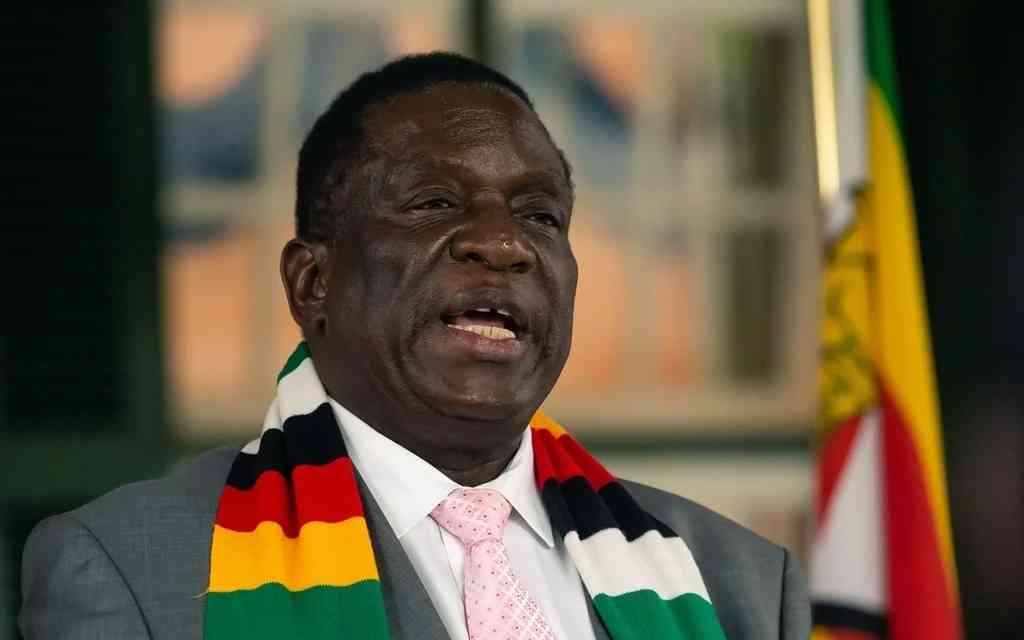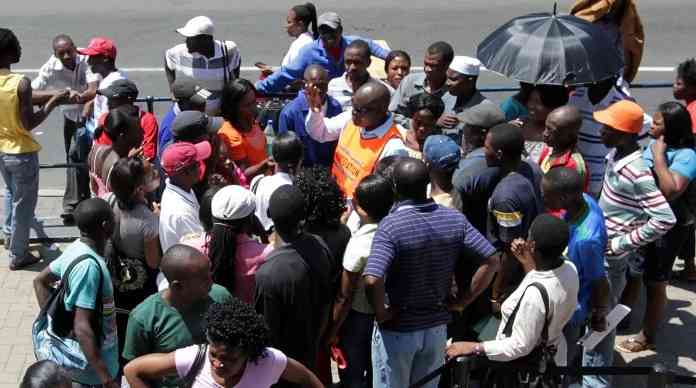
THE Brand Zimbabwe project launched this week will only succeed if President Emmerson Mnangagwa’s government effectively addresses the issues of the deepening economic crisis, policy inconsistency and concerns over the violation of human rights.
Brand Zimbabwe was launched in Harare on Monday amid much pomp and fanfare. It is designed to enhance the country’s domestic and international appeal to investors and tourists.
However, the government faces a daunting task to lure investment if revelations by the Zimbabwe Stock Exchange (ZSE) chief executive Justin Bgoni at the inaugural annual Zimbabwe Annual Investor Forum hosted by the Zimbabwe Independent and PiggyBankAdvisor last month are anything to go by.
Bgoni told delegates at the investment forum that Zimbabwe’s main bourse was now the worst performing on the continent due to subdued foreign direct investment (FDI).
The ZSE CEO said FDI inflows have been low since 2015.
“We now have the title of the worst performing market in the region, I agree,” Bgoni said. “But, for the past two years I think we have had some of the best performing markets; so I think it’s up and down if you look at it.
“If you look, fundamentally in Zimbabwe we haven’t had foreign direct investment come in since around 2015/2016. A large part of it is because of the exchange rate. People are worried that they won’t be able to get their money out so that has been the biggest problem in terms of money coming in,” he said.
The continued suspension of Old Mutual and PPC since 2020 by government as a measure to curb currency volatility is in stark contrast to government’s mantra that Zimbabwe is open for business.
- CCC urged to push for dialogue over reforms
- A peep into Matenganyika’s artistic closets
- The Bioskop Short Film Competition is back
- Mangwe farmers benefit from agric projects
Keep Reading
The continued suspension, which Bgoni said is embarrassing, has prejudiced more than 30 000 Old Mutual shareholders and has dampened investor confidence in the country.
There are also major concerns by investors over government’s penchant to flip flop on its policies, such as the decision by government to suspend lending by banks in May this year which caused mayhem in the market.
The policies by government are inimical to investment according to economic analyst Chenayi Mutambasere.
“The policymakers in both the ministry of Finance and the central bank have overseen the announcement of statutory instruments that impede on investor property rights. These sorts of risks are unpalatable for any genuine investors,” Mutambasere said.
She noted that currency volatility which has resulted in the depreciation of the Zimbabwean dollar against the greenback has made it difficult for investors to plan.
“The continued liquidity crisis also impedes the growth of the domestic market and given the current global situation, it is difficult to speculate a positive return for local companies,” she noted.
“The presence of information asymmetries wherein policy makers announce policy changes without consultation reduces the viability of Zimbabwe stocks. An increased risk profile is not necessarily accompanied by desired returns.”
FDI has plummeted from US$717,1 million in that year to US$259 million in 2019. Figures from the Reserve Bank of Zimbabwe show investment further declined during the first half of 2020 to US$71,2 million compared to US$111,6 million in the same period in 2019.
This is despite the setting up of the Zimbabwe Investment and Development Agency (Zida) by the government following the signing into law of the Zida Act (2020).
The Act deals with the promotion, entry, facilitation and protection of investment in Zimbabwe.
In its July 2022 Southern Africa Outlook Report, American financial services firm Fitch Solutions revealed that Zimbabwe still had the highest short-term and long-term risk in Southern Africa due to a continued deterioration of the country’s political and economic situation.
The global agency gave a country risk score of 33,3 on the back of Covid-19 restrictions easing and firmer international commodity prices.
The score remains lower than the regional and global average of 48,3 and 54,5, respectively.
Economist Prosper Chitambara believes that policy consistency, stability and credibility are key tenets government should address to unlock the much-needed investment.
“The doing business environment in Zimbabwe has been very challenging,” Chitambara noted. “The cost of doing business in Zimbabwe is on the high side and government needs to deal with this to unlock greater investment and capital inflows into the economy.”
Further working against government’s Brand Zimbabwe drive is the concerns over the state’s alleged human rights record.
The continued incarceration of Citizens Coalition for Change legislators Job Sikhala and Godfrey Sithole as well 16 supporters of the opposition party awaiting trial over the violence that erupted over the murder of Moreblessing Ali has only fortified the country’s image of a government that does not respect human rights.
This is in addition of allegations of abductions and torture of opposition party members, civil activists and even comedians by state sponsored agents, as well as, the ban on demonstrations by civil activists and opposition parties particularly CCC.
The failure by Mnangagwa’s government to implement recommendations by the commission set up to investigate the killings of half a dozen citizens and injuries to scores of others on August 1, 2018, by security forces during protests over the delay in the announcement of the harmonised elections that year.
The failure to implement the findings of the commission, which was headed by former South African president Kgalema Motlanthe four years later has drawn trenchant criticism from the European Union and the United States.
Mutambasere warns that political violence threatens government’s drive to brand the country as an attractive investment destination.
“Political unrest is another likely cause of concern from investors. Since the 2018 elections, the socio-economic environment has been plagued by political violence and other human rights abuses. That in itself dampens investor confidence,” she said.









